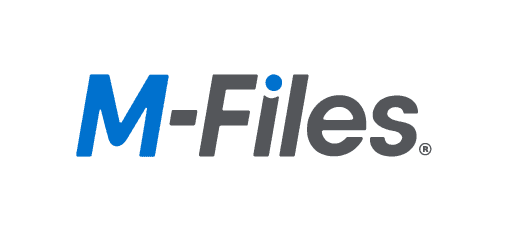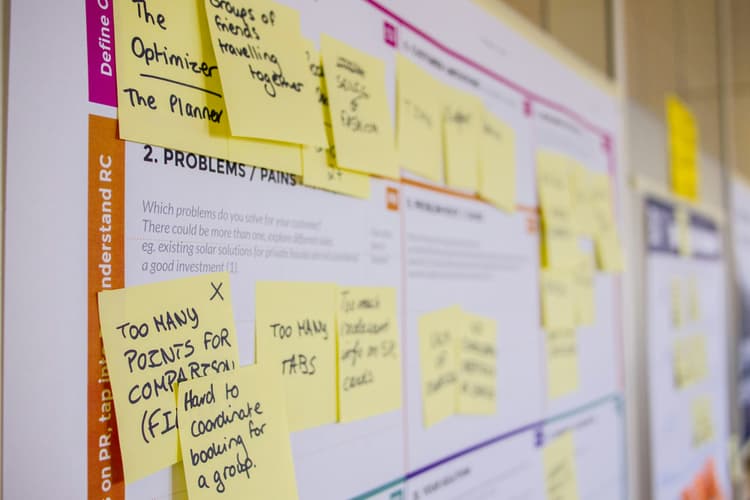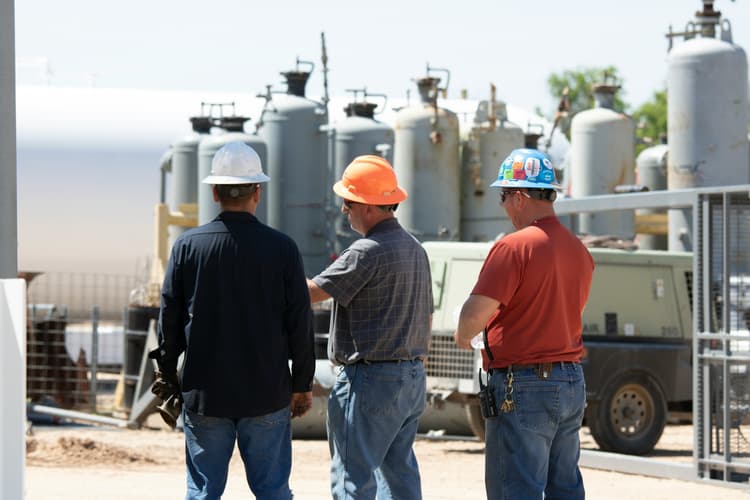Practical experience
Landing a job takes more than talent, it takes action. Demola gives you the chance to tackle real challenges, collaborate with others, and build proof of what you can do even when things are uncertain. By actively participating in a Demola project, you can turn your skills into competencies and concrete experience.

Partnered with Innovative Companies





Our platform, created together with leading companies and professors, connects you to real-world innovation projects. You’ll work as part of a team on an innovation and development project, guided by Demola’s expert facilitators. Participating in a project will give you practical experience and the confidence to deal with complexity in any job.
At Demola, innovation projects are built around real-world project topics co-designed with companies and public-sector organisations. If selected, you'll join an innovation team working to develop meaningful solutions that respond to validated needs.
Our projects tackle complex, relevant problems grounded in industry and societal needs. You'll work in a team to design and demo solutions, benefiting from the insights and findings of previous Demola projects. Most Demola projects last around two months, but the exact duration depends on the programme they are part of.
Each team benefits from expert guidance through coaching sessions and facilitated community events. Demola's facilitators bring years of experience in innovation and adapt their support to match your ambition and commitment. You are expected to take an active role, both individually and as a team.
You'll co-create with other teams and Demola's experts, and validate and test your solutions with real stakeholders to continuously refine your approach. High-performing teams gain access to a network of professionals from Demola's industry partners for further input and exposure.
You'll build in-demand, career-ready skills in creative problem-solving, AI-assisted innovation, project management, international collaboration, and resilience - all while working in an environment that mirrors real innovation practices.
Your team owns the outcomes created during the project. Use them in job interviews, your portfolio, a Master's thesis, or even as the foundation of a startup. In some cases, your work may also earn you academic credit (ECTS) if you are a student.
The impact
Ready to turn your skills into competence? Our claims are backed by feedback from our community of participants and alumni.

Strongly agree (49.3%)
Agree (43.6%)
Neither agree or disagree (5.3%)
Disagree (1.3%)
Strongly disagree (0.5%)
2 272 people took part in the survey.
New skills
65.6%
Valuable work experience
63.9%
New friends
51.5%
Startup ideas
34.4%
International teamwork experience
30.5%
Industry contacts
23.9%
Self-esteem
23.9%
New motivation to study
22.8%
Confidence in career choices
20.3%
Researcher contacts
17.6%
Better position in the labor market
13.5%
Other
1.5%
Based on Q4/2022 survey
If you’re currently studying at or near one of our Demola locations or partner universities, you’re welcome to join a Demola project.
In our partner cities, the projects are also open to graduates and professionals who are exploring new career paths or interested in co-creating and launching startups in the future.


Many alumni have participated in more than one Demola project – the current record is seven. For active alumni, we facilitate further development in their academic studies or future careers:
Explore or fine-tune your Master’s thesis topic through a Demola project and find a potential industry collaborator for your Master’s thesis after the project.
Develop an expert profile that highlights your project contributions, as well as innovation and interpersonal skills. Top-performing participants will have their expert profiles shared and recommended within Demola’s partner network, verifying their skills and proactive mindset.
Build on your project results, connect with like-minded teammates, and use your entrepreneurial mindset to lay the groundwork for a startup.
Get onboarded with Demola
Create a Demola profile.
Browse project in your location and apply to those that interest you.
If you get selected, confirm your seat and start the teamwork.
Apply to one or more projects today!

Prague
Future of Work
How can we design an intelligent matching concept that helps mobile professionals find not just available workspaces, but the right environment based on context, needs and professional relevance? The way we work has fundamentally shifted. Startup founders, innovation teams, consultants and remote professionals increasingly move between cities and temporary working environments. When arriving in an unfamiliar place, finding a workspace often becomes a matter of trial and error. Most existing tools focus on location, price and availability, but overlook deeper factors such as: - professional context - community relevance - level of privacy vs. networking potential - proximity to relevant ecosystem actors - accessibility and urban infrastructure - trust and quality signals This challenge goes beyond desk-booking platforms. The team is encouraged to rethink how work environments are segmented, how “contextual fit” can be defined and measured, and how data can enable intelligent matching rather than simple filtering. The project explores how workspace intelligence can become a new layer of decision support for mobile professionals. The goal is to transform structured workspace and ecosystem data into meaningful, user-centered intelligence. The multidisciplinary team will develop a clear matching logic and demonstrate it through a clickable prototype or UX/UI concept. The outcome should combine user insight, data structuring and product thinking into a scalable and transferable solution.
Apply by 01 Mar

Oulu, Prague
Future of Work
Police officers, firefighters, paramedics, and other emergency professionals operate in high-pressure, unpredictable environments where stress is constant and cumulative. Chronic exposure to stress impacts decision-making, situational awareness, physical health, and long-term mental wellbeing. While consumer wearables (e.g., Garmin, Apple Watch, Whoop) can estimate stress using heart rate variability (HRV), skin conductance, or movement, current solutions focus on individual wellness rather than operational environments and provide retrospective insights rather than actionable real-time intelligence. Emergency organizations need a new generation of wearable-enabled systems that move from passive stress tracking to operational stress intelligence. How might we design wearable technologies and data intelligence systems that: Measure stress reliably in extreme, real-world conditions Create a dynamic overview of individual and team stress states Transform stress data into actionable operational insights Support both performance and long-term wellbeing In this project we are aiming to create demonstrations of wearable stress detection tech for professionals in emergency field and concepts to utilize the data in operational, real-time situations to benefit the professionals.
Apply by 10 Mar

Oulu, Prague
Byte-powered Future
Due to the unstable geopolitical situation globally, landmines and unexploded ordnance (UXO) remain a critical humanitarian and safety challenge. In post-conflict regions vast areas of land are contaminated with hidden explosives, posing long-term risks to civilians, infrastructure development, agriculture, and economic recovery. Traditional demining is slow, dangerous, and resource-intensive. There is an urgent need for scalable, technology-driven solutions that improve safety, speed, and precision in mine detection and neutralization. This project explores how digital technologies can transform demining operations. What are the novel ways of scanning and detecting UXO’s in vast areas? How might we reduce human exposure for the high-risk areas? How can we enable faster and more scalable demining operations in post-conflict regions? How might we digitally map and create heatmaps of the contaminated areas? Airborne drones are probably the most obvious starting point for the project, but what kind of sensors and technologies could be used to do the actual demining? We are looking to help to solve even a small part of the complex operation of demining. This project aims to build demonstrations in the form of simulations and concept designs.
Apply by 10 Mar

Oulu
Human Beings in the Modern World
How can mobile and XR experiences reveal what is happening right now and in the next few hours around you? Everyday urban life is full of small moments, shifting rhythms, and emerging possibilities that often go unnoticed. This project invites participants to imagine a near future where cities quietly communicate with their citizens through mobile and XR experiences woven into daily routines. The challenge is to explore how extended reality can make the present and the immediate future visible in subtle, meaningful ways. Events about to begin, places filling with energy, moments of calm or movement, and collective urban moods could appear as digital layers in the city, transforming ordinary walks into moments of discovery. The focus is on speculative, experience-driven design rather than utility alone. How might everyday life feel if the city itself could whisper what is unfolding nearby? How could digital presence enhance awareness, curiosity, and connection without overwhelming attention? The outcomes may include futuristic concepts, XR experiences, narrative environments, or prototypes that explore a city that feels alive, anticipatory, and emotionally aware a city that reveals itself moment by moment.
Apply by 10 Mar

Delhi, Oulu, Pune
Value Creators of Tomorrow
In industrial B2B trade, one of the most time-consuming and painful processes is to understand the customer’s wants, needs and restrictions well enough. When talking about huge investments into complex machines and tools, there’s pressure on both sides of the table to meet the requirements and, in the best case scenario, surprise your customer positively. This is why the sales processes are long and tedious, and one might argue, lots of time wasted. How could we use AI-driven tools to gather and consolidate the customer’s needs, wants and specific design details to speed up the process and increase the quality of the first proposals? What kind of new tools would be helpful to map the current situation and the vision of the customer’s future? How might we visualise the offering and highlight the available customisation opportunities? The aim is to create a tool (or set of tools) to speed up the gathering of requirements, wants and needs of the customer, and visualise the potential options for them. The goal is not to create ”online store for complex industrial machines”, but to help with the first step of the purchasing process.
Apply by 10 Mar

Riihimaki
Future of Work
Finnish workplaces are becoming increasingly multicultural and more dependent on international talent. However, onboarding, communication, and leadership practices are often based on the Finnish language and an assumption of familiarity with Finnish working culture. This can lead to misunderstandings, inefficiency, and safety-related challenges in everyday work. The aim of this project is to develop a modern, multilingual onboarding and training solution that lowers language barriers and clearly explains the norms, expectations, and underlying logic of Finnish working life in a practical way. The solution takes cultural differences in communication and leadership into account and supports leadership practices that work in multicultural teams. The project seeks to improve multilingual and cross-cultural communication, reduce misunderstandings affecting work efficiency and safety, and strengthen trust within work communities so that employees feel safe to raise concerns and speak openly. Key question:What does an effective, multilingual onboarding and leadership solution for multicultural workplaces in Finland look like?
Apply by 11 Mar
See how Demola has helped students around the world succeed in their careers and personal lives.
Get the information you need with our comprehensive list of FAQs below:
Where can I stay up-to-date on the new projects and events?
Will I get my Demola certificate automatically after finishing the project?
I got accepted! What's next? How can I find my teammates?
What do the project's final results look like? What are the evaluation formats?
How much time should I prepare for Demola project?
Do you have any questions about Demola? See our help center
Join Demola and work on career-relevant projects with global impact.
